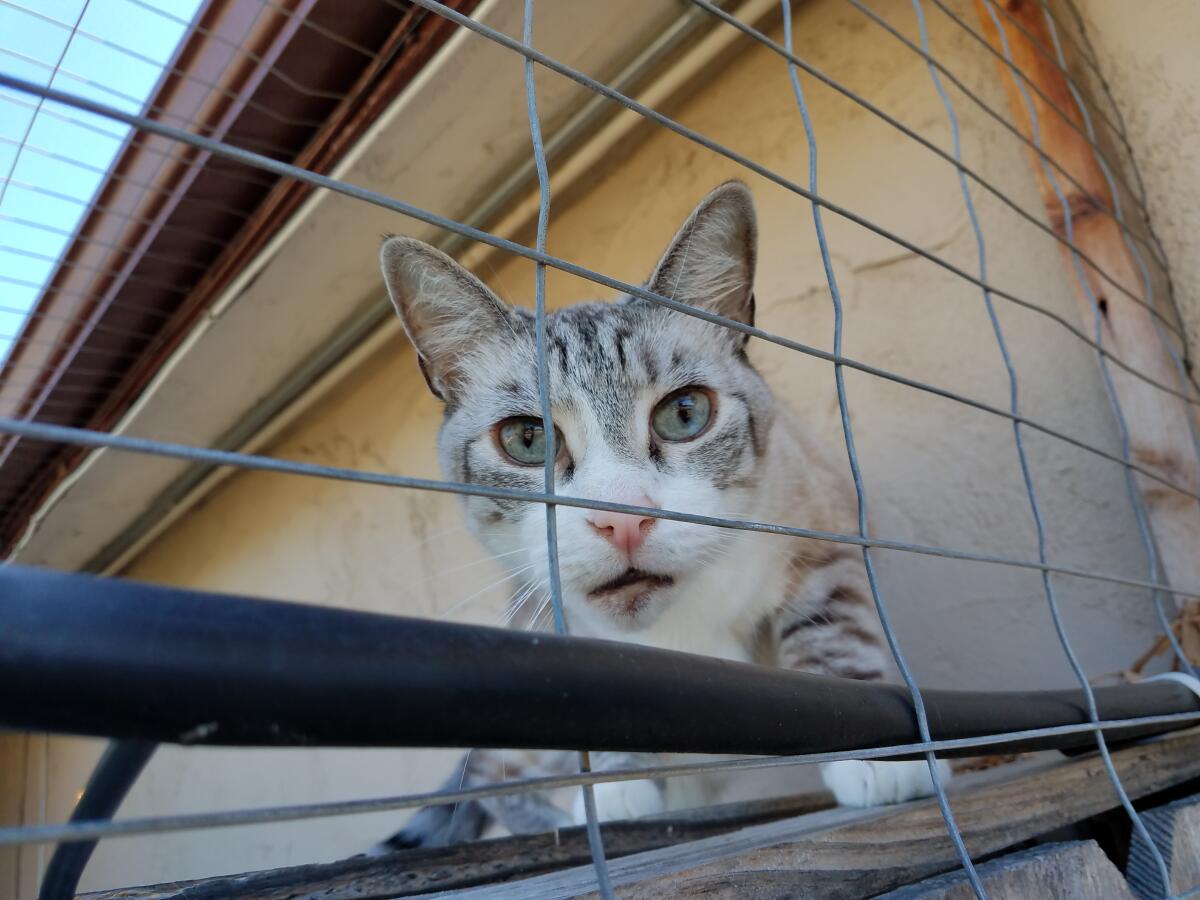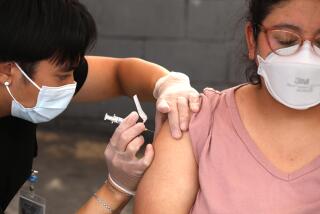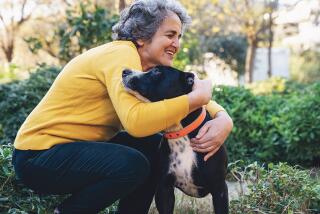Prepare for your pets’ care in advance of emergencies

Have enough food, water, medication, experts say
- Share via
SAN DIEGO — Experts say there is no evidence that companion animals can be infected with the novel coronavirus, but there are still things to be cautious about, and people should prepare for their pets’ care during an emergency.
Infectious disease experts from the Centers for Disease Control and Prevention as well as the World Health Organization are reassuring people that there is no evidence that animals can spread the virus that causes COVID-19.
The American Veterinary Medical Assn. agrees that there is no indication that pets can become ill with the virus or that they can spread it to other animals, including people.
The AMVA’s website says it recommends that those ill with COVID-19 limit contact with animals until more information is known about the virus.
“Have another member of your household take care of walking, feeding and playing with your pet,” the AMVA suggests. “If you have a service animal or you must care for your pet, then wear a face mask; don’t share food, kiss or hug them; and wash your hands before and after any contact with them.”
Regularly washing your hands and keeping them sanitized is the best thing people can do to stay healthy, the World Health Organization says, as well as avoiding close contact with anyone showing symptoms of respiratory illness such as coughing and sneezing.
Dr. Gary Weitzman, president and chief executive of the San Diego Humane Society, said the group recommends pet owners have a plan in place for their animals in case they themselves fall ill.
“While animals may not be at risk from this disease, we urge all pet owners to have plans for how to care for their animals in case of emergency,” Weitzman wrote in an email. “COVID-19 is no different, and serves as an excellent reminder to pull that plan together now if you don’t already have one.”
Keeping up with the most up-to-date information on the disease, including its effect on animals, is important, said John Peaveler, administrative lieutenant of emergency services for the San Diego Humane Society.
People should get their information from experts at the CDC and WHO websites, Peaveler said, as well develop plans and prepare for pets’ needs in case of emergency, such as during a quarantine.
Even without the virus concerns, with the ever-present threat of wildfires in Southern California, residents should have a care plan for their animals, Peaveler said.
Those plans, the San Diego Humane Society says, should include:
- Arrange for trusted friends or family who could care for your pets if you become sick or require a period of quarantine.
- Make sure your pets are wearing proper identification at all times, with your cellphone number or a number of a friend or relative.
- Having your pets microchipped can further protect your pet and help identify them if they were to become lost.
Alexandra Saint, a communications officer from the County of San Diego’s public safety group, said the Department of Animal Services is “recommending households with pets to include pet supplies — food, water and medication — in their planning should they potentially be asked to stay at home for 14 days.”
Weitzman suggested people consider the provisions that would be needed for themselves and their pets if quarantined for an extended period, and to secure those items. And he suggested developing a strategy in case a need arises for temporary alternate housing for pets if owners become unable to care for them.
A pet emergency kit should also be kept on site. The kits should be kept in a waterproof container and should include:
- Three-plus days’ supply food and food bowls, water and two weeks of your pet’s medications
- Litter boxes with litter for cats
- Extra leashes and collars
- Vaccination and medical records
- Photos and descriptions of each pet
- Pet first-aid book and pet first-aid kit
- Stickers you can attach to your pet’s tags with the information of your intended destination and outside temporary contact information
As always, contact your veterinarian and your physician if you suspect that you or your pet have been exposed to the virus.
Pearlman writes for the San Diego Union-Tribune.
More to Read
Sign up for Essential California
The most important California stories and recommendations in your inbox every morning.
You may occasionally receive promotional content from the Los Angeles Times.














